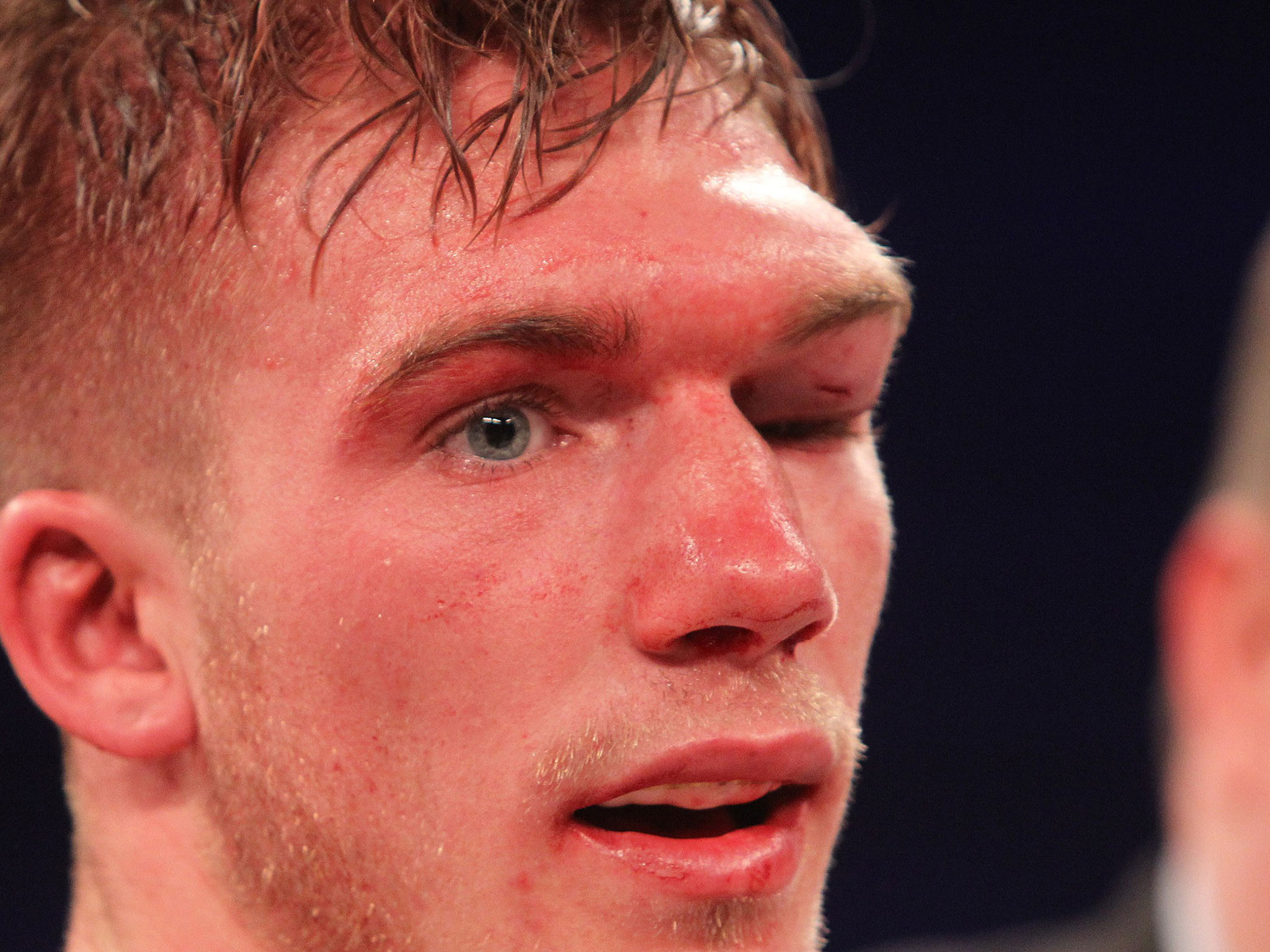pay out, that pushed the organisation to brink of closure, for its inadequate ringside medical care. For example, there had reportedly been no ambulance or paramedics present, doctors arrived to tend the fallen fighter after a cited eight minutes and in this time Watson had not received emergency oxygen. It was reportedly 28 minutes before Watson received treatment in a neurosurgical unit. The defining case forced a change to medical standards in professional boxing, which now requires highly qualified and fully equipped medical support ringside and emergency hospital access plans drawn up in advance. Roll forward to last weekend and the life-saving medical care for Blackwell on Saturday night was commended by the British Boxing Board of Control. Peter Hamlyn, the consultant neurosurgeon renowned for saving Watson’s life, told the Telegraph: “There were….things we learnt from the case of Michael Watson 25 years ago….The procedure in medical care was followed carefully and precisely and Mr Blackwell did not suffer hypoxia [oxygen starvation to the brain] and was medically induced into a coma.” Meanwhile, as the new kid on the block in combat sports, how is MMA set up to respond to this type of medical emergency? While market leader the UFC maintains standards equivalent to boxing (under US state athletic commission rules), unfortunately the answer for most promoters in the UK, and indeed many parts of the world where the sport remains unregulated, is it that isn’t. At the countless MMA events that happen week-in, week-out there is a lack of adequate ringside medical expertise and undoubtedly emergency medical supplies. There is no regulation to ensure fast access to emergency care facilities, or specifically neurological clinics. If Blackwell had collapsed at an unsanctioned event, the outcome would likely be far bleaker. UK voluntary medical advisory Safe MMA UK stipulates a minimum level of event cover, as agreed with its founding promoters and taking into account what is practically affordable to grassroots stakeholders. This is because it was charitably founded as a community initiative that aims to engage and work in partnership with participants to gradually raise safety levels voluntarily and from within the sport. However, it has no legal muscle and does not regulate onsite care. It does not stipulate the level of medical cover that was called into play when Blackwell collapsed. It is not surprising then that a subject that topped the agenda at IMMAF’s recent Medical Committee Conference in London was that of mitigating risk of death due to brain injury. There was also a push to bring IMMAF safety measures as close to UFC’s and professional boxing’s as possible. The IMMAF Board has since passed the unanimous committee motion that every IMMAF event must have pre-arranged access to a CT scan facilities for competitors on referral from their post-fight medical. Any fighter that has been knocked out/ TKOed and is deemed by fight medic to have taken significant head trauma should be sent in a timely manner to CT scan unit. Other safety initiatives, to be implemented this year, include that events can only be held within the vicinity of city that has a neural unit, again with pre-agreement with the hospital. However, IMMAF only has control over the management of its own events. On a local level IMMAF Medical Committee chairman, Safe MMA-Ireland founder and consultant neurologist, Professor Dan Healy, has meanwhile been an active lobbyist in his native Republic of Ireland at both grassroots and political levels and recently in the Irish press, pushing for all promoters to make the kind of provision that will prevent a ‘Michael Watson’ case. When BAMMA 24 took place in Dublin, under Healy’s consultancy the British promotion commendably up-scaled its at-event safety protocol. This comprised increasing its onsite medical cover and facilities and making an arrangement with a local clinic for the provision of immediate CT scans, MRIs and X-rays, on referral of a post-fight doctor. This will have come at an increased and voluntarily incurred cost to the business. And so, while MMA battles for recognition, is unfunded and not legally supported in the UK and Ireland (as in many other parts of the world), decisions around athlete safety lies on the shoulders of its participants. For local promoters, for many of whom profit is slight, increased at-event medical cover means increased and even unaffordable costs. And even where promoters have worked to introduce better medical measures these are not always welcomed by athletes or coaches who cite personal medical costs (for private blood tests and physical examinations), attending medical appointments and suspensions as burdens or inconveniences. Some coaches and athletes withdraw their support of promoters’ events or exert pressure, based on a perceived ‘tax’ on fighting. When inadequate provision can lead to life-long injury, brain damage or even death, advocates of sport regulation believe such moral decisions should not be left solely in the hands of promoter or up to the athletes who may not be properly educated about the sports’ risks. Written by IMMAF Marketing & Communications Director, Izzy Carnwath]]>

